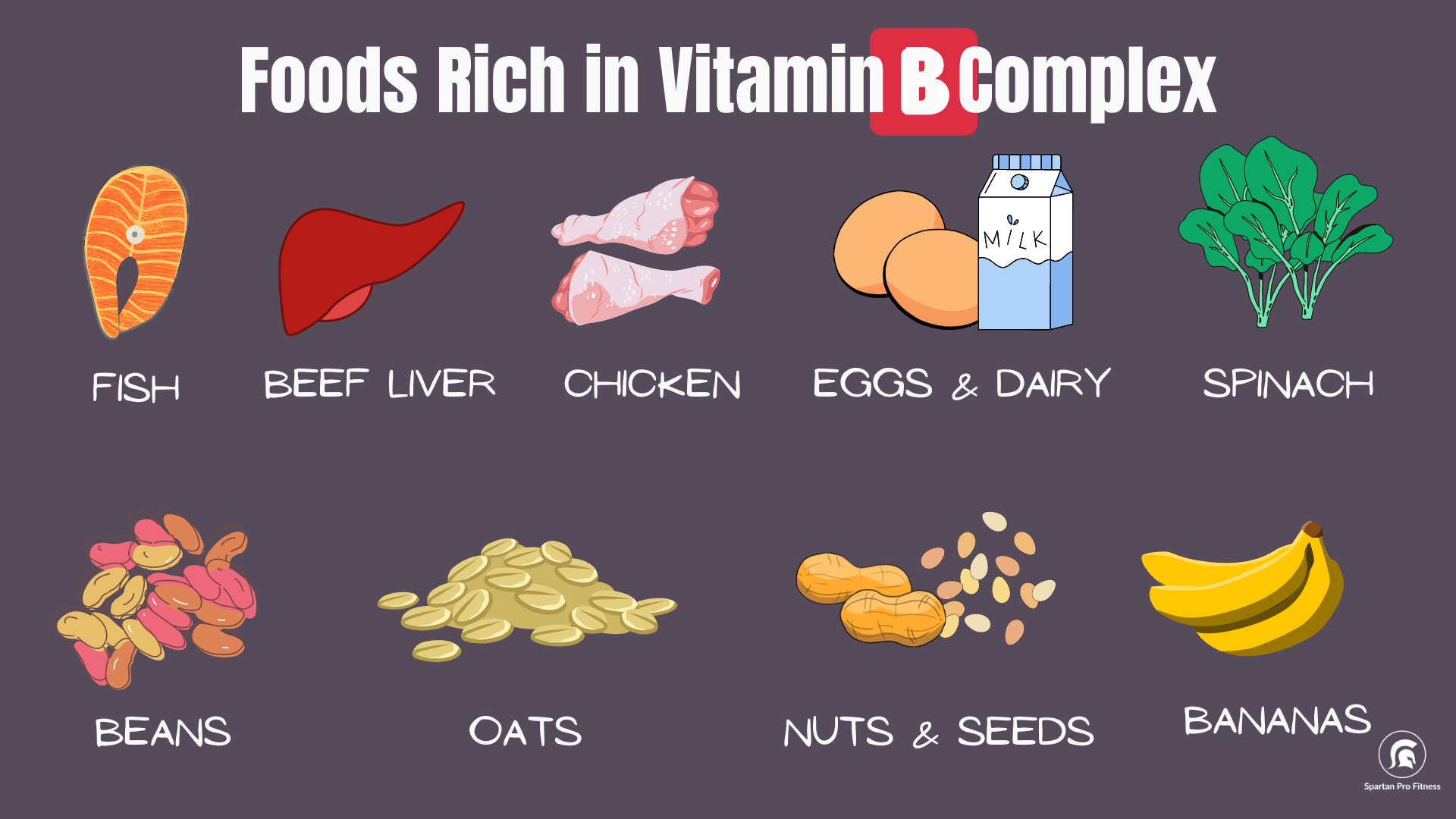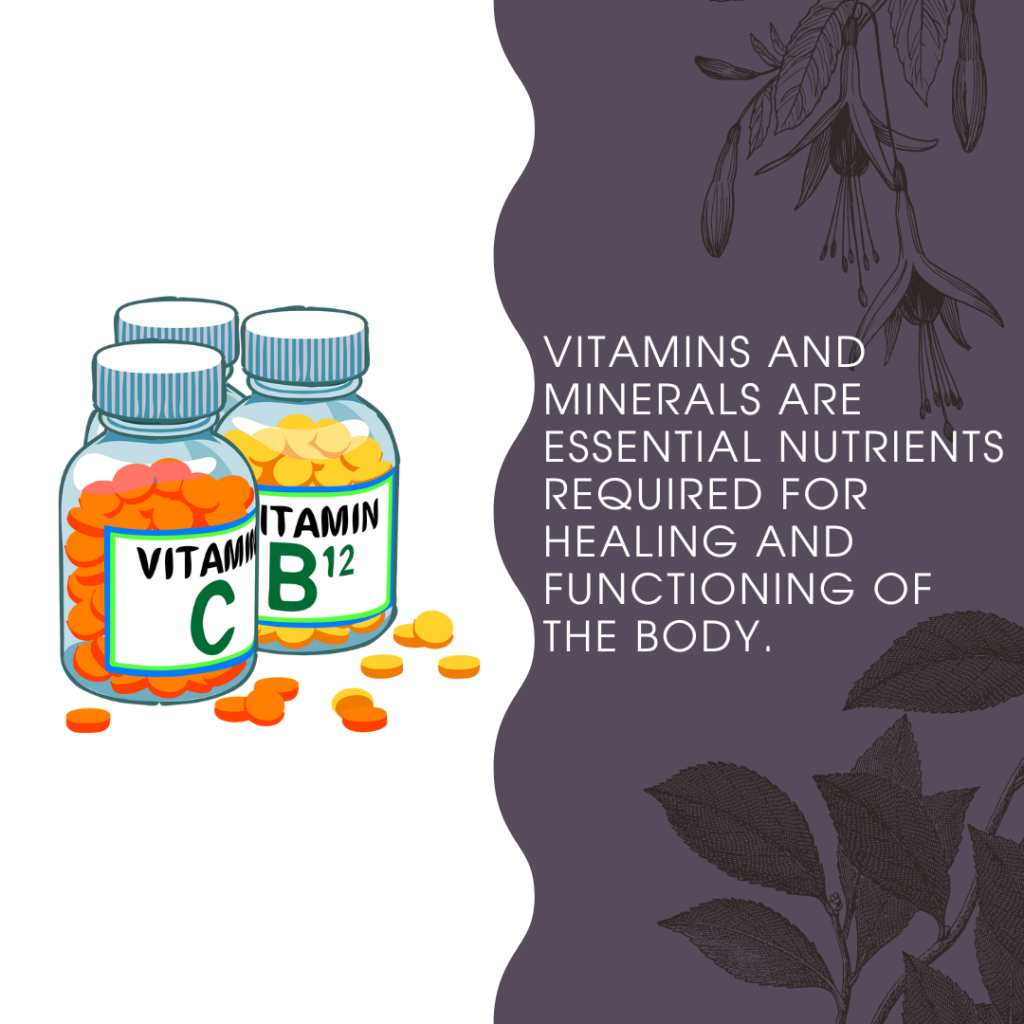
Vitamin B complex is a group of vitamins that are essential for the proper functioning of the body. These vitamins help the body to produce energy, maintain healthy skin and hair, and support the nervous system.
What is Vitamin B Complex?
Vitamin B complex is a group of vitamins that work together in the body to support various functions. These vitamins are important for energy production, metabolism, and nervous system function. Vitamin B complex can be found in foods such as eggs, meat, poultry, and legumes. It can also be taken as a supplement.
The health benefits of vitamin B complex include supporting the nervous system, improving energy levels, aiding metabolism, and reducing stress. Vitamin B complex is also essential for healthy skin and hair.
The Different Types of Vitamin B
There are eight different types of vitamin B, and each one has its own unique benefits. Here’s a quick rundown of the different types of vitamin B and what they can do for you:
- Vitamin B1 (thiamine): Helps your body convert food into energy.
- Vitamin B2 (riboflavin): Helps your body break down fats and protein.
- Vitamin B3 (niacin): Helps your body break down carbohydrates and fat.
- Vitamin B5 (pantothenic acid): Helps your body produce energy.
- Vitamin B6 (pyridoxine): Helps your body break down proteins and carbohydrates.
- Vitamin B7 (biotin): Helps your body break down fat.
- Vitamin B9 (folic acid): Helps your body produce new cells.
- Vitamin B12 (cobalamin): Helps your body produce new cells and break down food into energy.
The Benefits of Vitamin B
Vitamin B is an essential nutrient that helps the body to convert food into energy. It also helps the nervous system to function properly. Vitamin B is found in many foods, including meat, poultry, fish, eggs, milk, and yoghurt. Fortified cereals and bread are other good sources of vitamin B.
Vitamin B complex supplements can help to prevent or treat a deficiency. Supplements containing Vitamin B are also used to treat certain medical conditions, such as Crohn’s disease, celiac disease, and ulcerative colitis. Vitamin B complex can also be used to help improve mental health.
If you are considering taking vitamin B complex supplements, it is important to speak with your healthcare provider first. Vitamin B supplements can interact with certain medications, so it is important to make sure that they are safe for you to take.
Foods Rich in Vitamin B
When you think of healthy foods, you might not automatically think of foods high in B vitamins. However, these vitamins are essential for your body to function properly.
B vitamins are essential nutrients that play a role in many of the body’s key processes, including energy metabolism, nervous system function, and red blood cell production. While you can find B vitamins in a variety of foods, some stand out as particularly rich sources. Here are five healthy foods that are high in B vitamins.
- Eggs: Eggs are an excellent source of several B vitamins, including choline, biotin, and folate. Choline is important for liver health, biotin helps support healthy hair and skin, and folate is essential for pregnant women to help prevent birth defects.
- Salmon: Salmon is a rich source of vitamin B12, which is critical for red blood cell formation and nervous system function. It also contains omega-3 fatty acids, which have numerous health benefits.
- Spirulina: This superfood is an excellent source of several different B vitamins, including B1, B2, and B3. It’s also a good source of protein, so it’s perfect for those who are looking to boost their energy levels and their diet at the same time.
- Beef is an excellent source of vitamin B12, which is essential for red blood cell formation, and vitamin B6, which helps the body convert food into energy.
Recipes with B Vitamin-rich Foods
If you’re looking for recipes that are high in B vitamins, look no further! These five recipes all feature foods that are rich in B vitamins, so you can get the nutrients you need while enjoying a delicious meal.
Superfood Black Bean & Quinoa Salad: This salad is packed with nutrient-rich quinoa, black beans, and vegetables. It’s the perfect meal for a summer day.
Roasted Brussels Sprouts with Balsamic Vinegar: Brussels sprouts are a great source of B vitamins, and roasting them brings out their natural sweetness. Serve them with a balsamic vinegar dressing for a delicious side dish.
Salmon Parcels with Lemon and Cherry Tomatoes: Salmon is a great source of B vitamins, and this recipe features a healthy portion of it. The lemon and cherry tomatoes add bright flavours to the dish, making it perfect for a spring or summer meal.
Spaghetti Squash with Tomato Sauce: Spaghetti squash is a low-carb alternative to pasta that’s also high in B vitamins. Top it with your favourite tomato sauce for a hearty and healthy meal.
Sweet Potato Pancakes: These pancakes are made with nutrient-rich sweet potatoes that will not only give you B vitamins but also one sweet potato gives you 400% of the Vitamin A you need each day. (Not to mention that sweet potatoes — especially the orange and purple varieties — are rich in antioxidants that protect your body from free radicals.)
Tips for incorporating B vitamins into your diet
B vitamins are important for many different functions in the body, and eating foods rich in B vitamins can help ensure that you’re getting enough of these nutrients. Here are some tips for incorporating B vitamin-rich foods into your diet:
- Add leafy green vegetables to your meals. Spinach, kale, and other greens are excellent sources of B vitamins.
- Incorporate whole grains into your diet. Whole grains are a good source of thiamin, riboflavin, and niacin – all B vitamins.
- Eat a variety of fruits and vegetables. Many fruits and vegetables contain B vitamins, so aim to eat a wide variety of them to get the most benefit.
Consider taking a B-complex supplement. If you don’t think you’re getting enough B vitamins from your diet, a B-complex supplement can be a good way to ensure that you’re getting enough of these important nutrients.

How much vitamin B complex should you take?
There is no one-size-fits-all answer to this question, as the amount of vitamin B complex that you need may vary depending on your age, health, and diet. However, most experts recommend taking a vitamin B complex supplement that contains all eight B vitamins (B1, B2, B3, B5, B6, B7, B9, and B12) in order to ensure optimal health.
Are there any side effects of taking vitamin B complex supplements?
There are a few potential side effects of taking vitamin B complex supplements, but they are generally considered to be safe. The most common side effect is gastrointestinal upset, which can cause diarrhoea, constipation, and nausea. Some people may also experience headaches or skin rashes. If you experience any of these side effects, it is recommended that you stop taking the supplement and speak with your doctor.
In conclusion
There are many benefits to taking vitamin B complex, including improved energy levels, better skin health, and a reduced risk of some chronic diseases. If you’re looking for a way to improve your overall health, taking vitamin B complex could be a good option for you. Speak with your doctor about whether or not this type of supplement is right for you.



[…] Another benefit of pine nuts is that they are a good source of brain-healthy nutrients, including vitamin B6 and folate. These nutrients help to support cognitive function and mood […]
[…] D is one of the essential vitamins your body needs for overall health. It helps regulate calcium and phosphorus levels in the blood, […]
[…] seeds also contain a decent amount of zinc, vitamin B3 (niacin), potassium, vitamin B1 (thiamine) and vitamin […]
[…] Salmon is a great source of Omega-3 fatty acids, which help to reduce inflammation. In addition, it’s also rich in Vitamin D – which is often lacking in people’s diets. And finally, salmon contains high levels of biotin (a B vitamin). […]